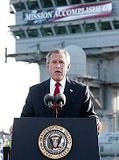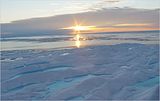-
The LA Times reports the Red Cross backs reports of Afghan civilian deaths.
Villagers said dozens of people — including women, children and elderly men — were killed while sheltering in crowded civilian compounds as fighting raged in the area Monday. About two dozen insurgents were thought to have died in the confrontation as well. Provincial officials Tuesday put the number of dead around 70.
The International Committee of the Red Cross said its representatives in the area saw dozens of corpses that had been pulled from the rubble in two separate locations in the district. Spokeswoman Jessica Barry in Kabul said the dead included women and children.
The Washington Post reports Secretary of State Hillary Clinton expresses regret for civilian casualties in Afghanistan.
Referring to an airstrike in western Afghanistan Monday that Afghan officials and foreign relief workers say killed dozens of civilians, Clinton expressed “my personal regret, and certainly the sympathy of our administration, on the loss of civilian life in Afghanistan.” She told Karzai: “We deeply regret it. We don’t know all of the circumstances or causes. And there will be a joint investigation, by your government and ours. But any loss of life, any loss of innocent life, is particularly painful. And I want to convey to the people of both Afghanistan and Pakistan that . . . we will work very hard, with your governments and with your leaders, to avoid the loss of innocent civilian life. And we deeply, deeply regret that loss.”
On top of the loss of life, the real problem is the Obama administration doesn’t “deeply, deeply regret” the loss of life enough to stop the air strikes. Each bomb and missile that we use in Afghanistan is an admission our strategy has failed.
Meanwhile, the LA Times reports President Obama prepares for talks with presidents of Afghanistan and Pakistan. Two days of talks are planned, “Afghanistan to overhaul a painstakingly developed security strategy that was unveiled only five weeks ago but already has become badly outdated. The three countries spent months developing their plan to combat an Islamic insurgency centered in eastern Afghanistan, near the Pakistani border. But growing militant activity in Pakistan is forcing them to hastily switch focus.”
The NY Times adds the Pakistani president tries to assure the U.S. over the Taliban. “President Asif Ali Zardari of Pakistan met privately for 90 minutes with members of the House Foreign Affairs Committee”. His “presentation, however, left some members confused and disappointed, according to a person who attended the meeting. He said little about how the Pakistani government planned to regain momentum in the fight against the militants. And when he asked for financial assistance, he likened it to the government’s bailout of the troubled insurance giant, American International Group.”
The United States has become the punchline to an international joke.
Meanwhile, Pakistan is up to their old con game. The NY Times adds Pakistan claims combat gains before U.S. talks.
Four at Four continues with governmental reports, another two bombs in Baghdad, and a stealth nationalization plan for Bank of America.

 On the 6th anniversary day of “Mission Accomplished”,
On the 6th anniversary day of “Mission Accomplished”,  Meanwhile, the MercoPress reports a
Meanwhile, the MercoPress reports a  The NY Times reports
The NY Times reports  It identified Rice as the official “who advised that the CIA could proceed with its interrogation of Abu Zubaydah” — the first suspected high-level Al Qaeda operative captured by the agency and the first to be subjected to waterboarding and other
It identified Rice as the official “who advised that the CIA could proceed with its interrogation of Abu Zubaydah” — the first suspected high-level Al Qaeda operative captured by the agency and the first to be subjected to waterboarding and other